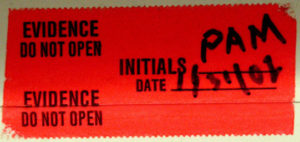 I help clients win new business by helping them craft targeted healthcare products, services, and content. This help might be research and analysis; product, sales, or business strategy; or marketing messaging. But all of it is informed by continuous market analysis and interviews with stakeholders.
I help clients win new business by helping them craft targeted healthcare products, services, and content. This help might be research and analysis; product, sales, or business strategy; or marketing messaging. But all of it is informed by continuous market analysis and interviews with stakeholders.
I guess that’s the PhD in me.
I started thinking of the kind of help I provide that has resonated with customers as evidence-based strategy advising. Indeed, such evidence-based strategy advising has either been my assigned role or part of my roles for the past 20+ years.
Aren’t all strategies evidence-based?
I’d like to think so. Research organizations, such as Gartner, Forrester, and IDC, do a lot of interviewing and research. Though I think the advice they give is dispassionately based on the research, such that the strategy recommendations they provide are usually only part of the story.
Firms like Accenture and McKinsey spend a lot of effort building up their case for the strategies they advise. I feel that they do try to be evidence-based, and, as I do, they also add their own expertise and fit their advice within their frameworks.
But I don’t think evidence-based strategies are common. I can usually tell when folks are going on gut feelings rather than evidence from the market: what they say doesn’t match what their organization is experiencing, their strategy is unrealistic or off-target, or they don’t have any awareness of their customers or the market. And I’ve seen this at companies of all sizes.
We be jammin’
Scholars do synthesize their insights and build a case around evidence. But to drive change and innovation in an organization you need to be more like a jazz musician: improvising and jamming partly on firm musical frameworks, but with the added flair of experience and talent.
What has resonated most with my customers is advice that makes sense of research that brings together various threads of information and thought and proposes possible strategies. Indeed, making sense of it and then being able to propose possible strategies is the key missing piece for most – the translation of market and customer intelligence into a real strategy.
In the building there are only opinions
The scientist in me has been taught to constantly find ways to disprove hypotheses. That’s why I am constantly validating my experience through questions, scanning the horizon, and building an evidence-based understanding that informs strategy and tactics.
Such an evidence-based mind-set is important in digital health. There are really no experts in this space: it’s a relatively new space, no one really has a great success story[1], and there only a few good studies[2] validating what opinions everyone has been having.
To succeed in digital health, one will need to gather the evidence, place it in an evolving framework of understanding, and add the flair of experience and talent to synthesize all of it into a real strategy that is based on more than just one’s own opinion.
That is an evidence-based strategy.
Are you evidence-based?
Part of what made me start 777labs was to bring some structure to how innovations are made, selected, and deployed in healthcare organizations. Tech vendors haven’t been doing their homework and have not been mindful of organizational barriers to innovation.
Being evidence-based is a good start to ensure the success and growth of innovations in healthcare.
What do you think? Are you evidence-based?
[1] Success in digital health is not about funding, but about patient impact, outcomes, cost reduction, and validation. [2] Validation (#proveit) is happening. Even when folks are not happy with the outcome, as in this study of a snake oil brain supplement that showed coffee worked better.
Image from Bill Smith